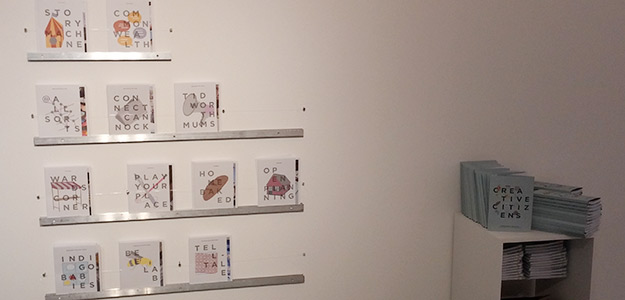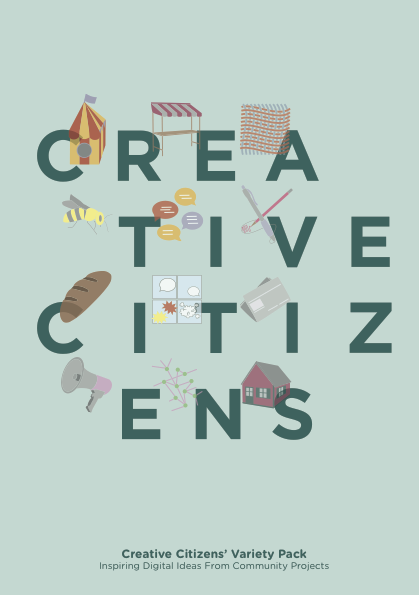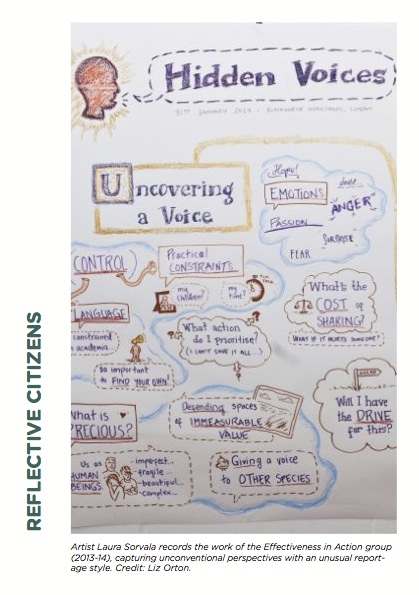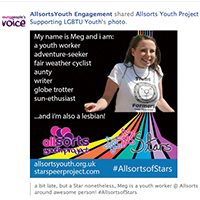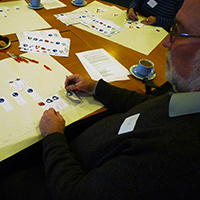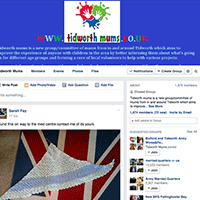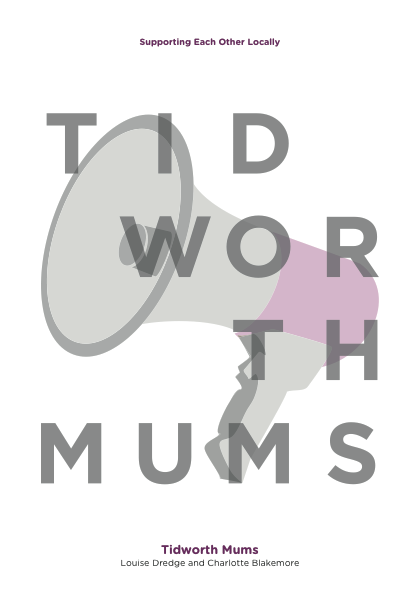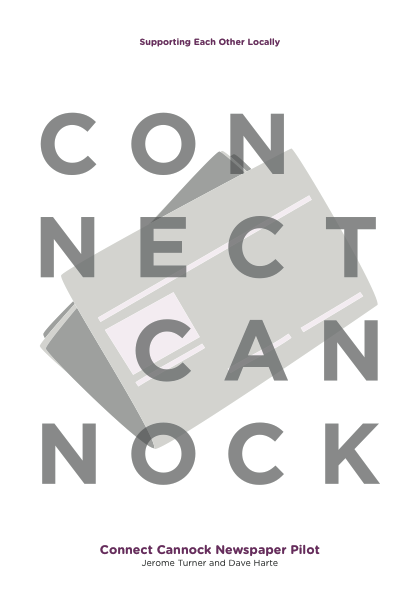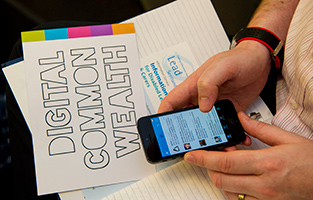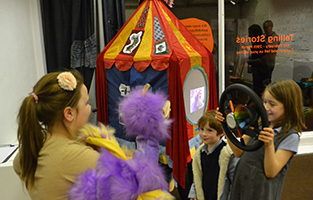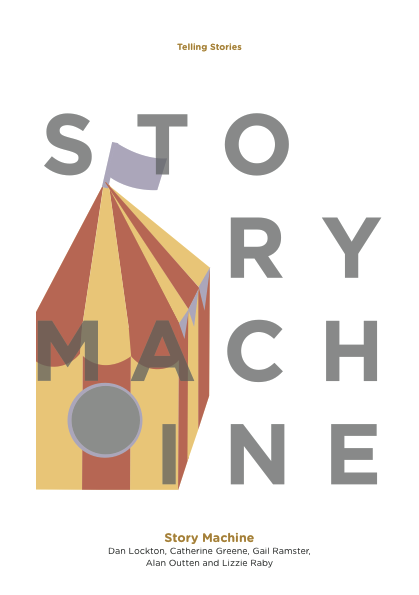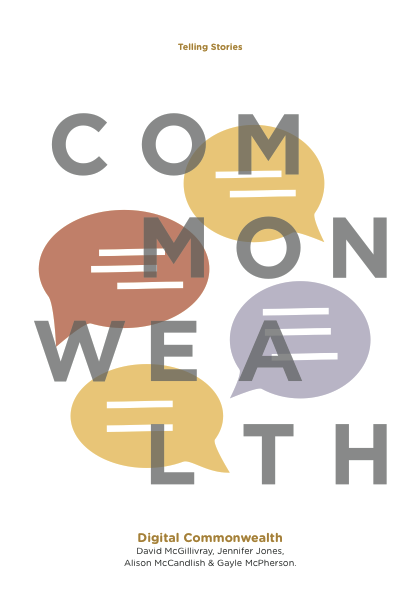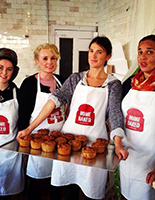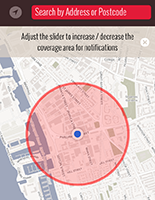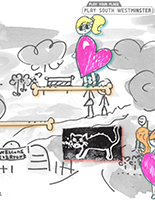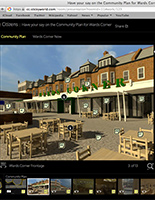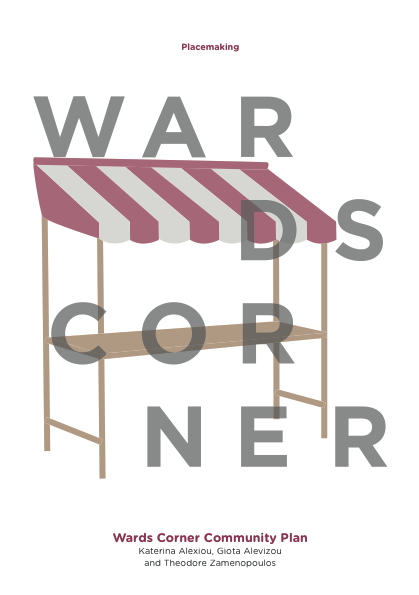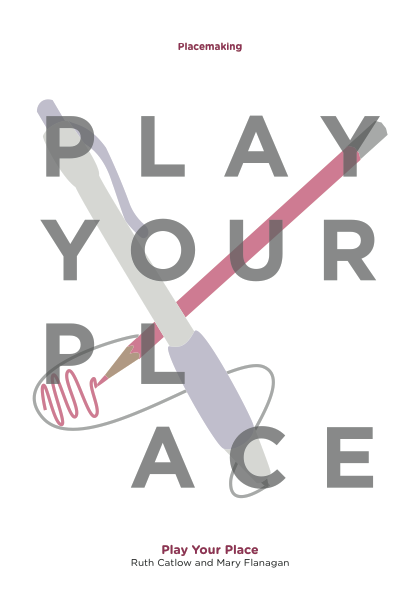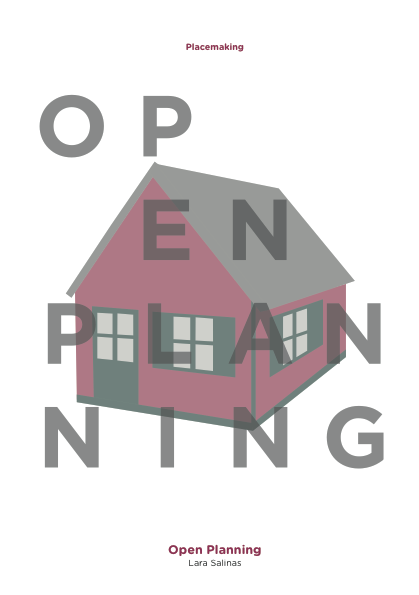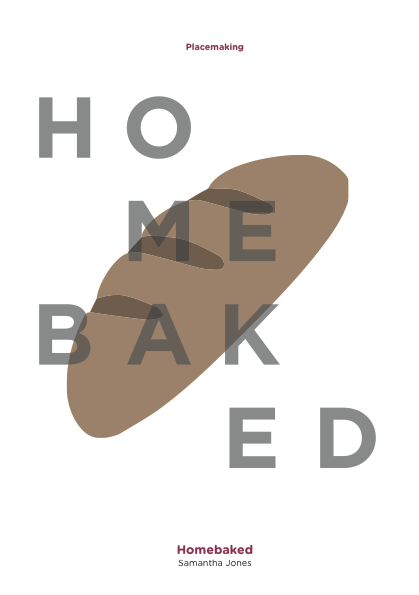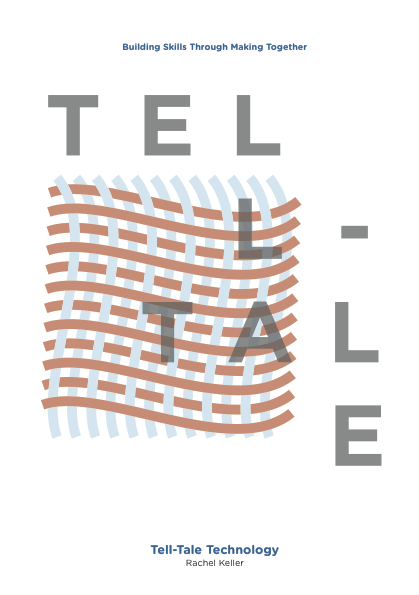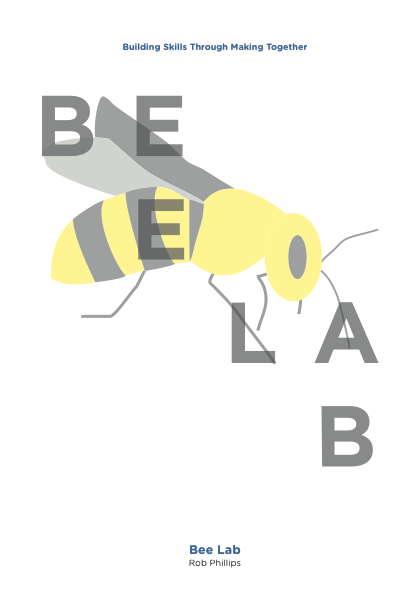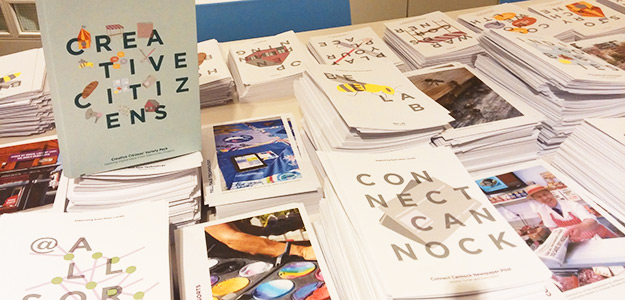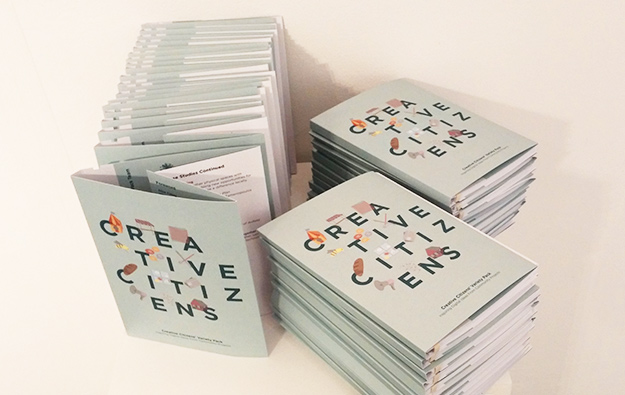
The Creative Citizens’ Variety Pack (2014) is a collection of practical case studies: 12 diverse, inspirational community projects, all making use of digital tools in creative ways for social benefit, with suggestions and advice from the people involved.
Along with projects from the three strands of the Creative Citizens project—hyperlocal publishing, community-led design and creative networks—we invited contributions from people working on interesting projects around the country, from beekeepers to bakers, storytelling to social media, and newspapers to graphic novels. Many of these projects are part of Connected Communities, a UK-wide programme designed to help connect community groups with academic research, jointly funded by the Arts and Humanities Research Council and Engineering and Physical Sciences Research Council.
▶ Lockton, D., Greene, C., Casey, A., Raby, E., & Vickress, A. (Eds.) (2014). Creative Citizens’ Variety Pack: Inspiring digital ideas from community projects, London: Royal College of Art. ISBN 978-1-907342-97-4.
 Â Â
  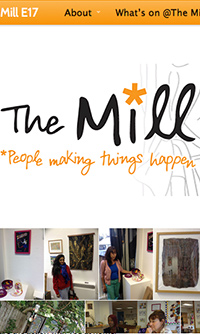  Â
  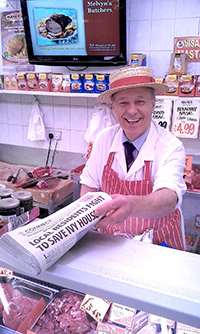
Our aim is for the Variety Pack to offer you something useful, whether you’re currently involved in a community project yourself, are looking for future ideas for your group, or just consider yourself a ‘creative citizen’. It’s intended as a practical complement to some of the more academically focused outputs from the Creative Citizens project. The book was designed by Lizzie Raby and Abbie Vickress, and edited by Dan Lockton, Catherine Greene, Alice Casey, Lizzie Raby and Abbie Vickress.
You can download the whole book (5.8 MB PDF) or browse the case studies below. If you would like printed copies, please contact the Helen Hamlyn Centre for Design, hhcd@rca.ac.uk
Foreword by Alice Casey, Innovation Lab, Nesta, looking at practical creativity and sharing knowledge
Welcome to the Creative Citizens’ Variety Pack, by Dan Lockton, Catherine Greene, Lizzie Raby and Abbie Vickress, Helen Hamlyn Centre for Design, RCA.
Some useful resources and search terms, suggested by our contributors.
Download this section (PDF)
Reflective Citizens: Some Creative Tactics for Communities
A short article by Ann Light, Northumbria University, discussing techniques for reflecting on what you do, as a way of supporting creativity in communities.
Download this section (PDF)
Supporting Each Other Locally
These case studies are about using digital media to bring people with something in common together, connecting and supporting each other in their local area.
Louise Dredge and Charlotte Blakemore
Tidworth Mums wanted to support local families and help engage their wider community. They created a Facebook group to share information about local activities and services with other members of the local community.
Download the Tidworth Mums case study (PDF)
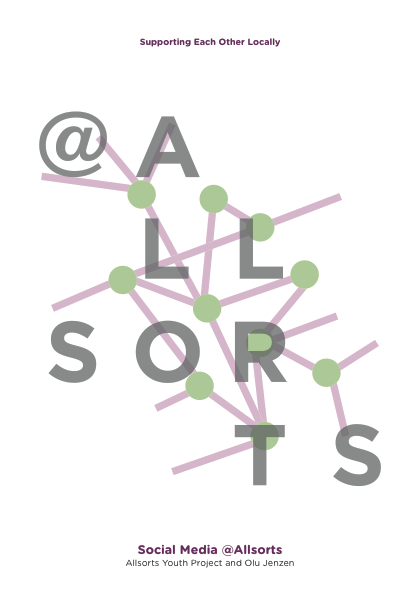
Social Media @ Allsorts
Allsorts Youth Project, Brighton
Olu Jenzen
Social Media @ Allsorts is a LGBTU (lesbian, gay, bisexual, transgender and unsure) youth engagement project, exploring and using digital and social media to inform, campaign and reflect on the issues LGBTU young people face.
Download the Social Media @ Allsorts case study (PDF)
Allsorts’ website, Twitter and Facebook
Connect Cannock Newspaper Pilot
Jerome Turner and Dave Harte
Connect Cannock is a ‘hyperlocal’ news website serving a community where the local newspapers have ceased publication. In this project, Connect Cannock, together with researchers from Birmingham City University, encouraged local people to participate in the introduction of a new printed newspaper, which brought the website to the attention of a wider cross-section of the community.
Download the Connect Cannock Newspaper Pilot case study (PDF)
Connect Cannock website, Twitter and Facebook
Telling Stories
Two projects about enabling people’s voices to be heard, locally and beyond, using digital tools to create and share.
The Story Machine at The Mill
Dan Lockton, Catherine Greene, Alan Outten, Lizzie Raby and Gail Ramster
The Story Machine is a mini-cinema/puppet booth/ video camera which enables the community’s stories to be told, seen and heard more widely and more easily, through a combination of digital technology and engaging ‘low-tech’ activities.
Download the Story Machine case study (PDF)
The Story Machine section on The Mill’s website
Digital Commonwealth
David McGillivray, Jennifer Jones, Alison McCandlish and Gayle McPherson
The Digital Commonwealth (DCW) project enables people and groups to make the best use of creative tools and digital technologies to tell their stories, making the process more accessible.
Download the Digital Commonwealth case study (PDF)
Digital Commonwealth website, Twitter, Facebook and YouTube channel
Placemaking
These projects are all about bringing together physical spaces with digital tools, enabling new opportunities for communities to make a difference locally.
Wards Corner Community Plan
Katerina Alexiou, Theodore Zamenopoulos and Giota Alevizou
Wards Corner Community Coalition wanted to find a more compelling and convenient way to engage their local community in developing their own vision for the area. They used the Stickyworld platform to create a 3D environment online that would help people engage in planning, and confront other plans for the site.
Download the Wards Corner Community Plan case study (PDF)
Wards Corner Community Plan blog, Stickyworld and Facebook
Play Your Place
Ruth Catlow and Mary Flanagan
Play Your Place is a framework of playful, social drawing events and simple online game-building tools through which people draw, make and play games to develop a collective vision of their future locality.
Download the Play Your Place case study (PDF)
Play Your Place website, Twitter and Github
Open Planning
Lara Salinas
Open Planning is a Liverpool-based project aiming to empower and engage citizens in the local planning process, through a mobile phone app which improves communication channels with local authorities.
Download the Open Planning case study (PDF)
Homebaked: An Oven at the Heart of Anfield
Samantha Jones
Homebaked is a community-owned bakery and community land trust in Liverpool, developed through a Kickstarter crowdfunding campaign. It provides local people with a choice of healthy food, job and training opportunities and a community meeting space.
Download the Homebaked case study (PDF)
Homebaked website, Twitter and Facebook
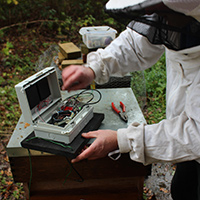
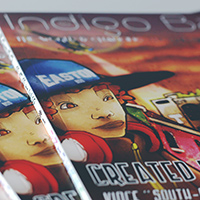
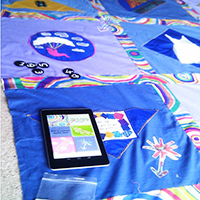
Building Skills Through Making Together
Projects that are about communities creating and learning together, using digital tools to make craft, art and technology for themselves.
Tell-Tale Technology
Rachel Keller
Tell Tale Technology is a community project using the swipe technology found in contactless payments to enable digital storytelling, by linking textiles to video, audio, and photographs.
Download the Tell-Tale Technology case study (PDF)
Bee Lab
Rob Phillips
Bee Lab is a project about enabling the beekeeping community to enhance care for bees, by harnessing the power of open design, DIY technology and citizen science.
Download the Bee Lab case study (PDF)
Bee Lab project details and Twitter
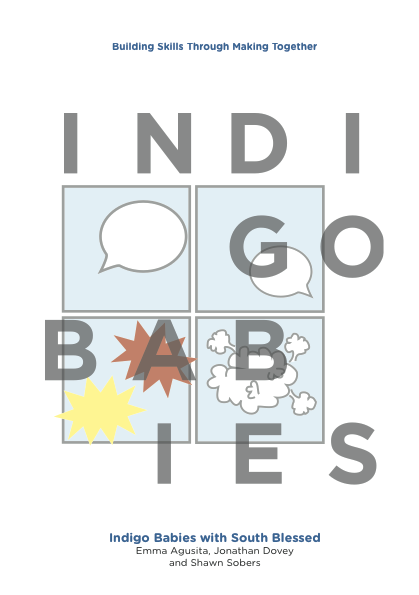
Indigo Babies with South Blessed
Emma Agusita, Jonathan Dovey and Shawn Sobers
Indigo Babies is a graphic novel, in both print and digital formats. It is published by the Bristol creative youth network South Blessed, to fund opportunities for young, creative people.
Download the Indigo Babies case study (PDF)
Indigo Babies website, Twitter and YouTube channel
Contributors and organisations featured
Emma Agusita, Giota Alevizou, Katerina Alexiou, Charlotte Blakemore, Alice Casey, Ruth Catlow, Jonathan Dovey, Louise Dredge, Mary Flanagan, Catherine Greene, Dave Harte, Olu Jenzen, Jennifer Jones, Samantha Jones, Rachel Keller, Ann Light, Dan Lockton, Alison McCandlish, David McGillivray, Gayle McPherson, Alan Outten, Robert Phillips, Lizzie Raby, Gail Ramster, Lara Salinas, Shawn Sobers, Jerome Turner, Abbie Vickress and Theodore Zamenopoulos.
Allsorts Youth Project, Brighton; Birmingham City University – Birmingham Centre for Media & Cultural Research; Blackburn Girl Geeks; Connect Cannock; Engage Liverpool; Furtherfield; Homebaked Community Land Trust; Horizon Digital Economy Research; Lancaster University – Creative Exchange; Lancaster University – HighWire Centre; Liverpool City Council; Liverpool John Moores University; Liverpool Vision; Nesta; Northumbria University – School of Design; Open University – Department of Engineering & Innovation; RedNinja; Royal College of Art – Design Products; Royal College of Art – The Helen Hamlyn Centre for Design; South Blessed, Bristol; Technology Will Save Us; The British Beekeepers’ Association; The Glass-House Community Led Design; The Honey Club; The Mill E17, Walthamstow; Tidworth Mums, Wiltshire; Tiltfactor; University of Brighton – School of Art, Design & Media; University of Liverpool; University of the West of England – Digital Cultures Research Centre; University of the West of Scotland – Media Academy Knowledge Exchange; Wards Corner Community Coalition.
With special thanks to: Ingrid Abreu Scherer, Vince Baidoo, Louise Dredge, Margaret Durkan, Ian Hargreaves, Gail Ramster and Harriet Riley. And to Dareece, Emma, Jerome, Giota, Margaret and Caroline for helping put the Variety Packs together.
